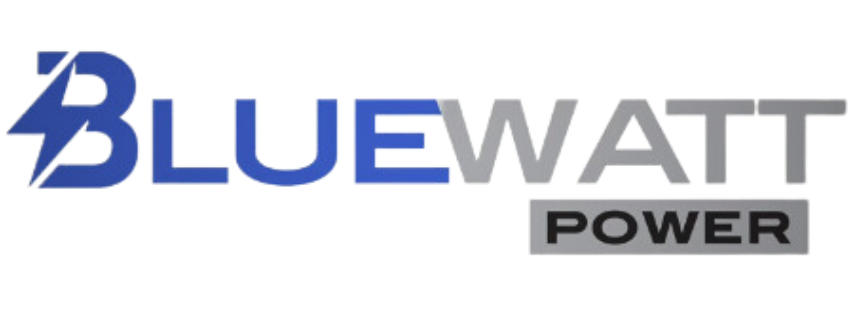Blog


Busting Solar Myths: How Does Weather Really Impact Your System?
There have been rumors that solar systems only operate in warm, sunny climates. While that can be true, solar panels are much more advanced than your average 8th-grade science experiment. In fact, solar installation systems work in a wide range of places. From New Jersey to Hawaii solar can be the right fit for you. But how do the changing weather conditions impact your system?
Solar Panel Installation: Performance in Various Weather Conditions
Heat and Cold
There are several common myths surrounding the function of solar panel systems. Many have caused consumers to believe false information concerning how solar panels convert energy into electricity and how they perform during weather conditions. So how do solar panels convert solar power into electricity and what’s the deal with the weather?
One popular misconception is that solar panel installations perform best in very hot climates. Take the southwest for example where temperatures easily reach over 100 degrees on a summer day. However, like any other technology, they can easily get overheated during summer days causing the solar power system to not perform at its highest capabilities. Due to soaring temperatures, the panels generate less voltage and become less efficient. Therefore producing less energy.
Most people believe that solar energy is produced by the heat from the sun which is entirely inaccurate, it is instead produced by the rays from the sun. The solar power system absorbs light from the sun and turns it into electricity through the photovoltaic process. The light energy within the rays drives the process of conversion, not the direct heat from the sunlight. Therefore the common myth that solar panels operate better in hot climates is disproven, the PV semiconductors actually are opposed to extreme heat, making the entire conversion process less efficient in cases on hot summer days.
Your solar installer will even tell you that solar panels work better when the climate is cooler. As previously mentioned when the temperature rises the panels generate less voltage due to the stress on the system. So like other electronics, your solar installation system works more efficiently in colder temperatures. Although your panels are built to withstand the strongest of storms or the most drastic of temperatures, keep in mind that your panels may not work at 100% efficiency during the hottest days of the year.
Storms and Rough Weather
Solar companies are experienced at installing panels to withstand storms and rough weather. So your solar panels are built to withstand strong winds, rains, and snow storms. In fact, solar is extremely popular in Puerto Rico which is heavily impacted by terrible hurricanes causing mass power outages for weeks at a time. So if you’re worried about how solar panels can withstand strong storms in your climate, there is no need. Rain can actually positively impact your energy efficiency since it cleans dirt and debris, helping you cash in on your energy savings.
Snow can be a bit bothersome if you get heavy snowfall. However, if your solar installation system is pitched right the snow will slide right off. Most solar panels have a warmer surface temperature, some even hovering right above freezing. This encourages the snow to easily melt and slide off, allowing you to enjoy snowed-in days without the threat of blackouts.
Nighttime and Batteries
Another myth is that solar panels exclusively work during perfectly sunny hours. Here’s something you didn’t know, solar panels can actually work at night or even during overcast days. But here’s the catch, while they still work at night they won’t be generating electricity at their full capacity. As long as there is at least a little sunlight, your solar panels will generate some electricity. But how much and their capacity to do so depends on the sunlight available.
One quick way to see if your system is generating electricity is to look for shadows outside. If there are some shadows cast by the waning sunlight then your unit is producing electricity at a lower capacity. So while it is a myth that solar panels will not produce electricity on overcast or rainy days it is true that they will not produce as much electricity as they would in optimal conditions.
The main way to power your home on overcast days or at night time is to use solar batteries. These home storage battery systems will capture the excess solar energy on days when your system overproduces electricity. If you don’t use the excess energy it would usually get sent back to the power grid, however, you can instead store that extra electricity allowing you to watch your reality TV even when the sun isn’t shining. If you’re interested in learning more about solar home batteries contact the best solar installers in your area, aka us… click the Contact Us button on this page to get more information from one of our team members!
Incentives-
So now that you’ve learned about the awesome benefits of solar and how it works in all types of weather, how do you get a system for your home affordably? Lucky for you there are countless incentives available for homeowners who want to make the switch to solar. Like the Federal Tax Credit for Solar. This enables homeowners who make the switch to claim a 30% tax credit on their total installation cost.
They also allow incentives like Net Metering which pays you for the extra electricity you generate that is sent to the power grid. At the end of the year, your utility company will pay you for your electric meter spinning backward. Both these incentives and more are in place to encourage homeowners to switch to solar.
But why does the government want you to make the switch? Well, solar energy is a clean renewable source of energy. That means Americans who use solar energy are not reliant on fossil fuels, successfully combating climate change and its effects on the environment. There are of course other factors like energy independence. With more homeowners using solar energy, there is less impact on the electricity grids. Reducing the amount of energy used during peak hours and removing the increasing demand for electricity. By incentivizing the switch to solar the government aims to achieve a more sustainable and clean energy source for Americans.
If you’re interested in making the switch to a clean renewable energy source that also lowers your electric bill, contact us, your new favorite solar company! We’d be more than happy to help you in your process of making the switch to solar. So click the Get Started button and start your journey today!
Sources:
https://www.energysage.com/local-data/solar-rebates-incentives/
https://www.eia.gov/energyexplained/renewable-sources/incentives.php
https://www.forbes.com/home-improvement/solar/solar-tax-credit-by-state/
https://www.solaralliance.com/how-do-clouds-affect-solar-panels/
https://www.paradisesolarenergy.com/blog/how-does-weather-affect-solar-panels
https://www.cnet.com/home/energy-and-utilities/do-solar-panels-work-when-its-cloudy/
Text "Design" to (813) 384-8445 today for a free custom solar design!
Copyright © 2024 BlueWatt Power - All Rights Reserved. | Terms of Service | Privacy Policy

